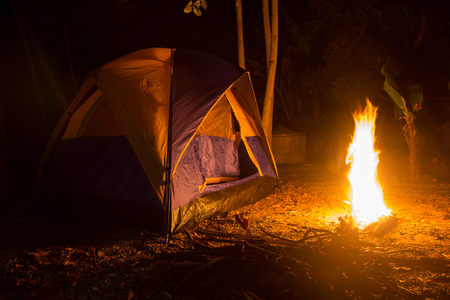Introduction to Wild Camping in the UK
Wild camping has always held a special allure for adventure seekers across the UK, offering a unique way to experience Britain’s rugged landscapes far beyond the confines of traditional campsites. Unlike pitching up at an organised holiday park, wild camping—particularly with a campervan—means immersing yourself in nature, often in remote locations where tranquillity and breathtaking scenery are your only neighbours.
However, wild camping is not simply about parking up wherever you fancy. The UK has a patchwork of laws and regulations when it comes to overnight stays outside designated campsites. In Scotland, thanks to the Land Reform (Scotland) Act 2003, wild camping is widely permitted on most unenclosed land, provided you adhere to the Scottish Outdoor Access Code. In England, Wales, and Northern Ireland, the rules are much stricter—wild camping is generally not allowed without the landowner’s permission, with some exceptions such as parts of Dartmoor National Park.
What truly sets wild camping apart from standard campsites is the sense of freedom and connection to nature it provides. There’s no check-in desk or rows of electric hook-ups—just you, your campervan, and the great outdoors. But with this privilege comes responsibility: campers must respect local communities, leave no trace, and avoid causing damage or disturbance. Key etiquette includes keeping noise to a minimum, taking all rubbish away with you, avoiding lighting open fires unless permitted, and ensuring you’re parked discreetly and considerately.
If you’re keen to experience wild camping in the UK legally and safely, understanding these basics is essential before setting off on your next adventure.
2. Essential Legal Considerations and Safety Tips
Before you set off on your wild camping adventure across the UK, it’s crucial to get familiar with the legal landscape—especially as regulations differ between England, Wales, Scotland, and Northern Ireland. Here’s a practical breakdown to help you camp confidently and stay out of trouble.
Understanding Wild Camping Laws: Scotland vs. The Rest of the UK
| Region | Wild Camping Rights | Key Rules |
|---|---|---|
| Scotland | Permitted under the Land Reform (Scotland) Act 2003 | Respect privacy, keep groups small, follow Scottish Outdoor Access Code. Some restrictions in Loch Lomond & The Trossachs National Park. |
| England & Wales | Generally not allowed without landowner’s permission | Dartmoor is a rare exception (with some limits). Always seek consent elsewhere. Avoid trespassing or parking overnight on private land or council car parks. |
| Northern Ireland | No automatic right; highly restricted | Stick to official campsites or obtain direct permission from landowners. |
Practical Tips for Legal and Safe Campervan Stays
- Ask First: If in doubt, always seek permission from landowners or check local council bylaws before staying overnight.
- Avoid No Overnight Parking Zones: Respect signage in laybys, car parks, and rural roadsides; fines can be hefty.
- Keep a Low Profile: Arrive late, leave early, and avoid setting up tables, chairs, or awnings outside your van—this helps minimise complaints from locals and avoids attracting attention.
- Leave No Trace: Dispose of all rubbish responsibly, use portable toilets where possible, and don’t light fires unless explicitly allowed.
- Sensible Security: Lock doors at night, keep valuables hidden, and park in well-lit or popular spots if travelling solo.
- Emergency Prep: Have a charged phone, first aid kit, and basic breakdown supplies. Share your itinerary with someone you trust if venturing far off-grid.
Your Wild Camping Checklist for Peace of Mind
- Checked local laws and permissions?
- Parked discreetly and respectfully?
- Left no trace behind?
- Kept security measures in place?
- Emergency contacts informed?
Navigating the UK’s wild camping rules can seem daunting at first, but with these guidelines you’ll be able to find stunning spots for your campervan while keeping things safe and strictly above board. Next up: discover our favourite tried-and-tested locations that tick every box for legal wild camping bliss!

3. Top Spots for Legal Wild Camping with Campervans in Scotland
When it comes to wild camping in the UK, Scotland stands out as a true haven for campervan enthusiasts. Thanks to the Land Reform (Scotland) Act 2003, you’re free to explore many breathtaking locations, provided you respect nature and follow the Scottish Outdoor Access Code. Here’s a practical guide to some of the best legal wild camping areas in Scotland, plus real-world tips to ensure your stay is hassle-free.
Loch Lomond and the Trossachs National Park
This iconic park is on every wild camper’s bucket list. With its dramatic lochs, rolling hills, and ancient woodlands, it offers countless scenic spots perfect for an overnight stop. However, due to its popularity, certain parts of Loch Lomond operate under seasonal Camping Management Zones (typically March to September). Within these zones, you must book a permit or stay at designated sites—ignore this and you could face a fine. Outside of managed areas, you’re free to camp responsibly: arrive late, leave early, keep noise down, and never leave litter behind.
Practical Tips for Campervanners
- Arrive Early: The most stunning spots fill up quickly, especially during summer weekends. Aim to arrive before sunset to secure a good place and settle in without rushing.
- Check Road Conditions: Some rural roads can be narrow or winding—classic Scottish B-roads! Make sure your van is up to the job and always check local traffic updates.
- Respect Local Communities: If you’re stopping near villages or farms, be considerate: keep noise minimal and avoid blocking access roads or gateways.
Other Noteworthy Scottish Locations
- Cairngorms National Park: A wild landscape packed with secluded glens, ancient pine forests, and picturesque lochs. Stick to hard-standing areas when possible and avoid soft ground after rain.
- Isle of Skye: Famous for rugged beauty and dramatic coastal views. Be extra mindful of busy seasons—Skye’s infrastructure can get overwhelmed by visitors. Stick to less-travelled routes when searching for overnight spots.
- Glen Etive: Star of many films (including James Bond’s Skyfall), Glen Etive is a magnet for adventurers. The single-track road has limited passing places; give way when required and always leave space for locals.
Final Word: Leave No Trace
The golden rule of wild camping in Scotland is simple: leave every spot better than you found it. Dispose of waste responsibly (never dump grey water in streams!), take all rubbish home with you, and minimise campfire use—especially in dry weather. By following these on-the-ground tips and sticking to legal zones like Loch Lomond & the Trossachs, your Scottish campervan adventure will be both memorable and hassle-free.
4. Campervan-Friendly Locations in England, Wales and Northern Ireland
While wild camping is famously permitted in parts of Scotland, those journeying south of the border must tread a bit more carefully. Laws in England, Wales, and Northern Ireland are stricter, but seasoned campervanners know there are still some cracking spots where a night under the stars is possible – provided you follow local guidelines and etiquette. Here’s a practical overview to help you make the most of your wild camping adventure.
A Legal Lowdown: Where Can You Camp?
Wild camping isn’t generally legal on open land across England, Wales, or Northern Ireland without landowner permission. However, there are a handful of places where it’s tolerated or even welcomed for responsible campervans. The key is always to check signage, look for local by-laws, and when in doubt, ask directly.
| Region | Recommended Spots | Permission Required? |
|---|---|---|
| England | Dartmoor National Park (selected areas) Northumberland Coast Lakes District (quiet lay-bys) |
Some areas allow with informal agreement; check with rangers/locals |
| Wales | Bannau Brycheiniog (Brecon Beacons) National Park Snowdonia (quiet valleys away from main car parks) |
Landowner permission advised; some remote farm fields may be available if you ask politely |
| Northern Ireland | Mourne Mountains (designated car parks) Causeway Coastal Route (certain rural stops) |
Always request landowner or council consent |
Expert Recommendations: Hidden Gems Worth the Detour
- Dartmoor’s Southern Edges: While some parts have seen restrictions, locals tip off about lesser-known commons near Ivybridge – ideal for discreet overnight stops if you arrive late and leave early.
- Bannau Brycheiniog’s Rural Farms: Many farmers offer ‘wild-style’ pitches for campervans at a small fee. It’s a great way to support locals while enjoying proper peace and quiet.
- Mournes Forest Trailheads: Some trailhead car parks allow overnight parking for self-contained vans – just double-check with forestry rangers first.
Approaching Landowners: British Etiquette Tips
- Always be polite and straightforward. A quick “Would you mind if I parked up for one night?” goes a long way.
- Mention that you’ll leave no trace and won’t light any fires.
- If they decline, thank them kindly and move on – it keeps goodwill alive for everyone else.
Practical Know-How
If you’re ever unsure, pop into a local pub or shop and ask for advice – Brits appreciate good manners and respect for their land. Always tidy up after yourself and leave early to avoid causing any nuisance. With a bit of planning and courtesy, wild camping in a campervan south of the border can be just as memorable as anywhere in the Highlands.
5. Practical Wild Camping Gear and Campervan Setup
When it comes to wild camping across the UK, having the right gear and a well-prepared campervan setup makes all the difference between a soggy nightmare and an authentic, comfortable adventure. With Britain’s famously changeable weather, rugged landscapes, and strict regulations on waste disposal, it’s essential to kit out your van for both safety and self-sufficiency. Here’s what you’ll need to make your wild camping trip both legal and enjoyable.
Essential Kit for UK Climates
The British weather can turn on a sixpence – one minute it’s glorious sunshine, the next you’re caught in a downpour. Invest in quality waterproof clothing, sturdy boots, and thermal layers, no matter the season. A decent awning is invaluable for those drizzly evenings, giving you extra dry space outside your van. Don’t forget insulated mugs and flasks for hot brews when the temperature drops at night.
Waste Disposal: Leave No Trace
Wild camping means you’re responsible for every bit of rubbish you produce. UK rules are strict: always pack out what you bring in. Equip your campervan with sealable bins or composting toilets designed for off-grid use. Biodegradable waste bags are handy for food scraps, but always check local guidance before burying anything. Dispose of wastewater far from streams or lakes using eco-friendly soaps only.
Power Solutions for Off-Grid Living
Reliable power is a must for lighting, charging devices, and running essentials like fridges or heaters. Solar panels are increasingly popular – they’re silent and sustainable for topping up leisure batteries throughout your journey. Many wild campers also carry portable power stations or invest in split-charging systems that juice up your batteries as you drive. Always conserve energy where possible; LED lights and low-power appliances help stretch your reserves.
Campervan Modifications for Wild Camping
A few thoughtful tweaks will set your van apart from standard campsite setups. Blackout blinds or curtains ensure privacy (and keep out early morning light), while extra insulation in walls and floors combats chilly nights. Swivel seats create more living space inside, and pop-up roofs add headroom or sleeping quarters without drawing attention in remote spots. External storage boxes or roof racks come into their own if you’re bringing bikes or paddleboards along for the ride.
Handy Extras
Don’t overlook little comforts that make wild camping special: collapsible furniture, battery-powered fairy lights, and a compact barbecue can transform even the most windswept lay-by into a cosy retreat. A decent OS map or offline navigation app helps you find secluded spots while staying within legal boundaries – signal isn’t always guaranteed in the wilder corners of the UK!
With these practical tips and upgrades to your kit and campervan, you’ll be well-equipped to explore the UK’s top legal wild camping locations safely, responsibly, and in true British style.
6. Respecting Nature and Local Communities
Real-World Strategies for Minimising Impact
Wild camping in the UK offers a unique escape, but it comes with the responsibility to protect both the environment and local communities. Adopting practical “leave-no-trace” habits is essential. Always take all your rubbish home—even organic waste like banana peels or tea bags, as these can harm local wildlife and ecosystems. Stick to established tracks when driving your campervan, and avoid parking on sensitive ground or blocking gateways used by farmers and residents.
Supporting Rural Communities
Your wild camping adventure is also an opportunity to give back to the rural areas you visit. Buy supplies from local shops, sample produce at village markets, and pop into independent cafés or pubs for a meal—these small actions make a real difference to local economies. When possible, ask landowners for permission before staying overnight, especially outside Scotland where wild camping rights are more limited. A friendly chat can often lead to valuable local tips and help foster goodwill.
Local Insights for a Positive Experience
Respecting local customs and regulations is key to a genuinely positive wild camping experience. Keep noise to a minimum, especially after dark, and avoid lighting fires unless you’re certain it’s permitted and safe—UK weather can make even grassland highly flammable in summer. In popular spots, arrive late and leave early to minimise your footprint. Lastly, share your own experiences online or with fellow campers, highlighting ethical practices and hidden gems that welcome responsible visitors. By blending thoughtful behaviour with community support, you’ll help ensure wild camping remains a cherished British tradition for years to come.


